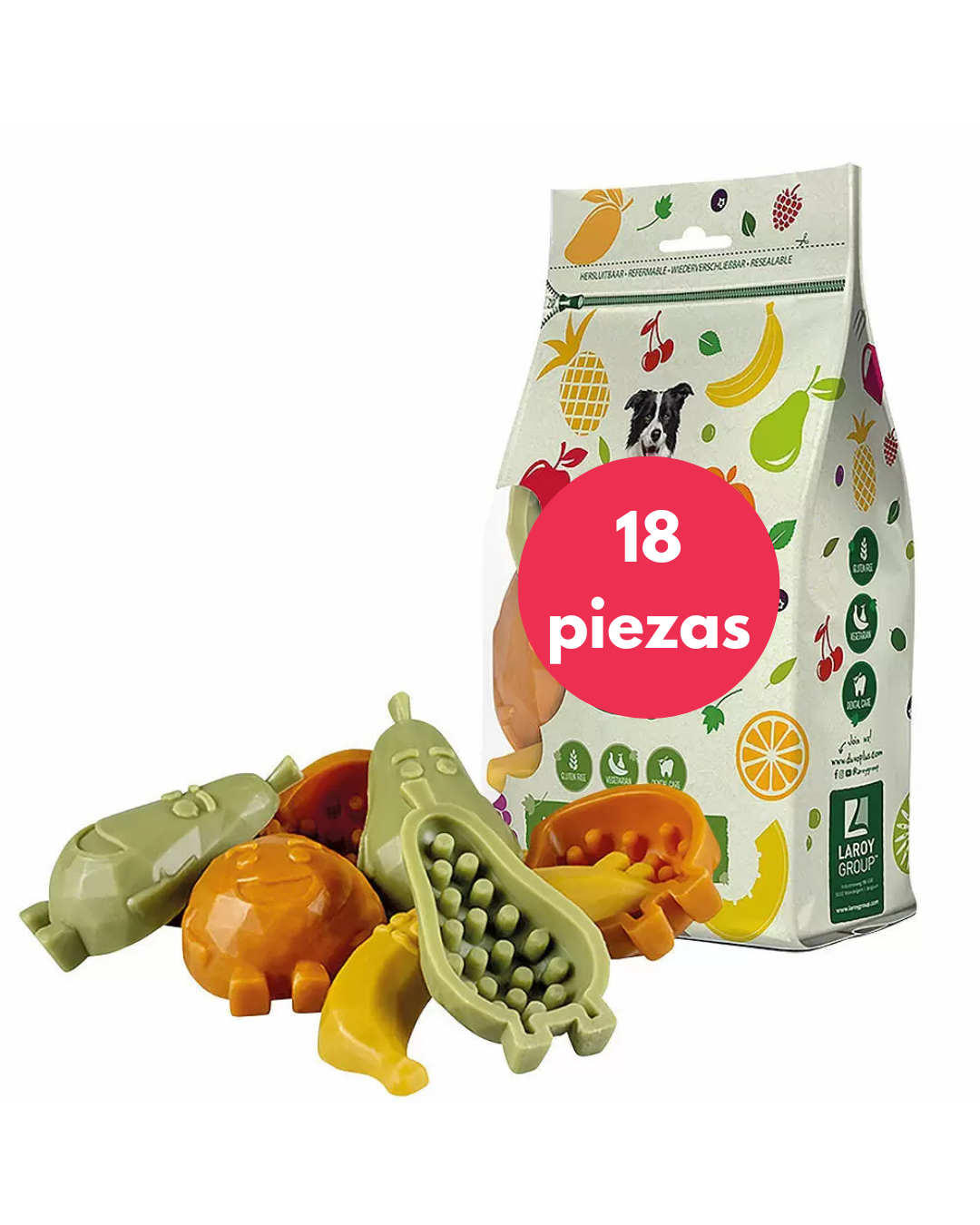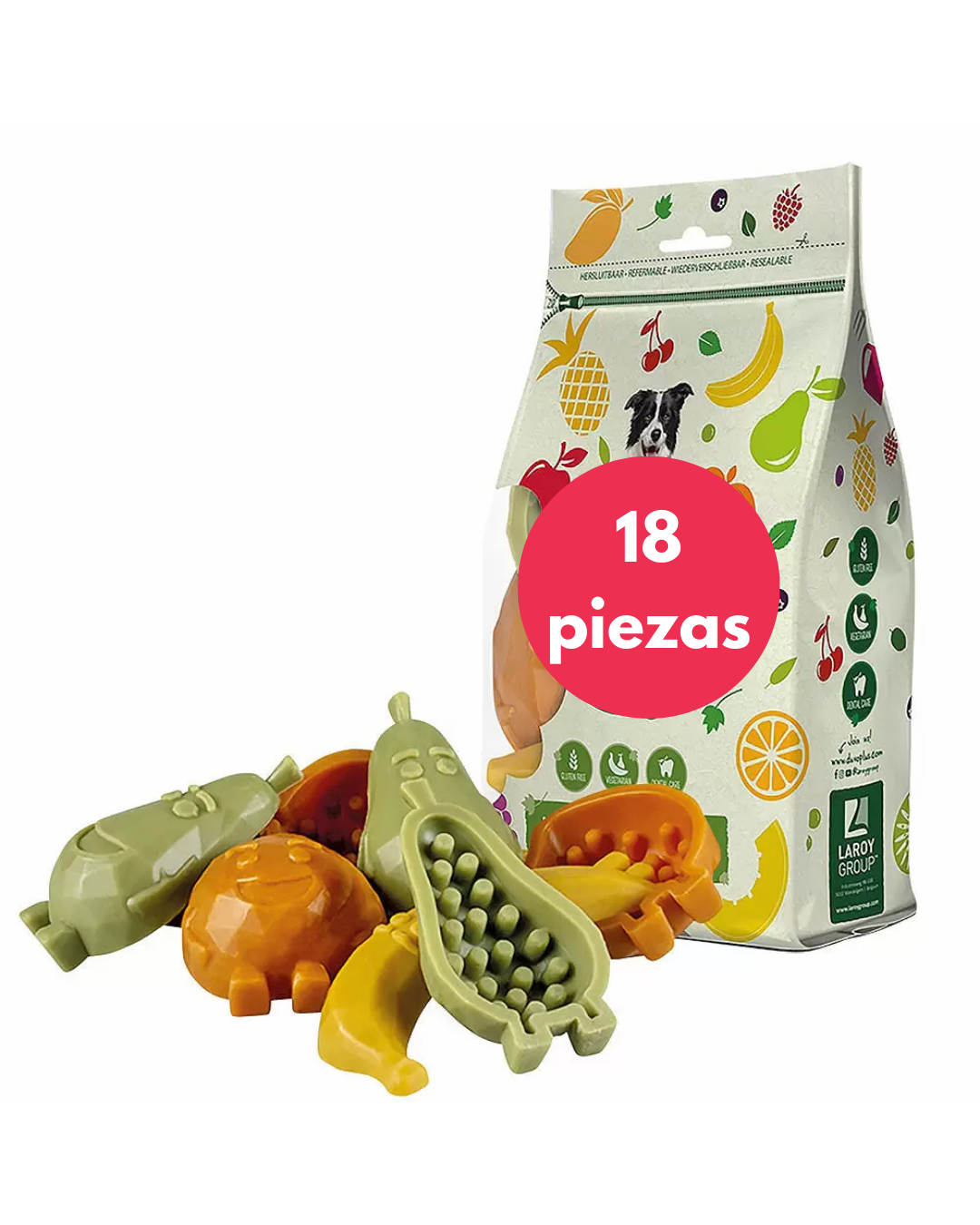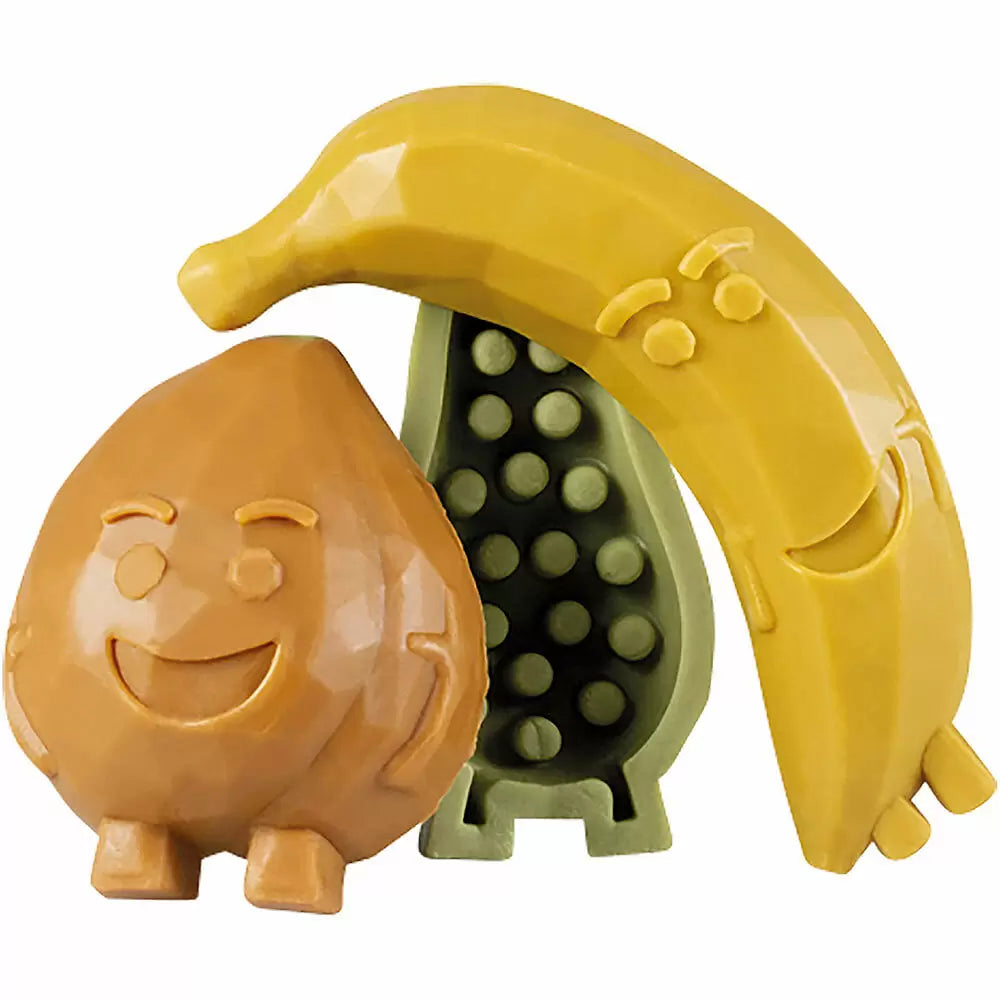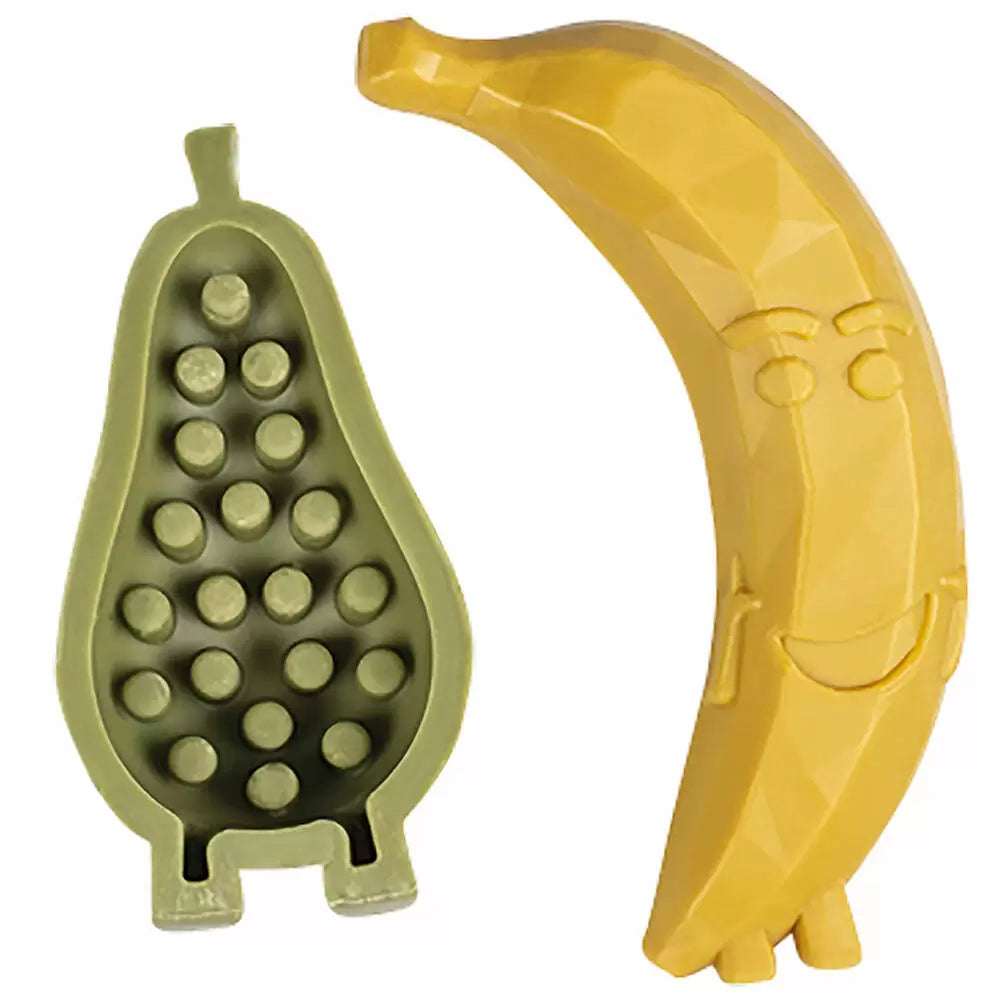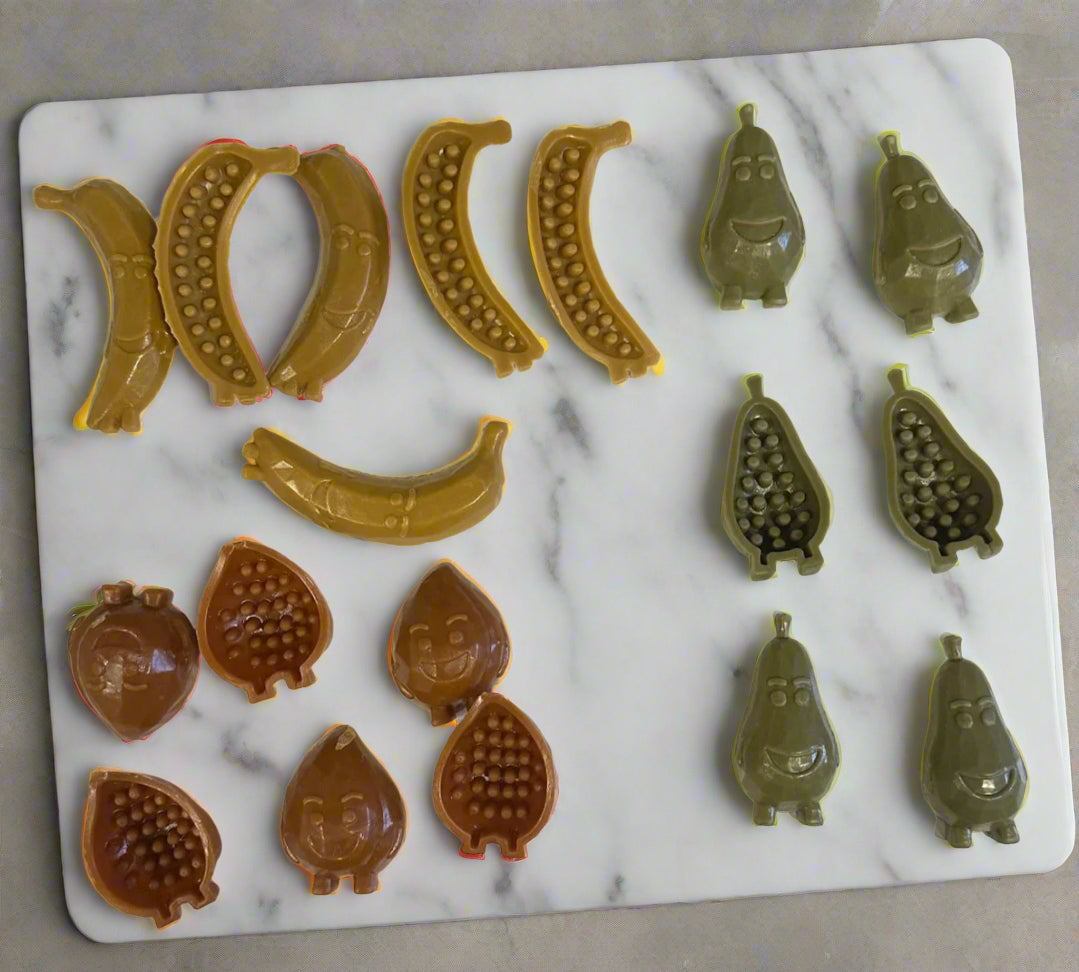What Fruits Can Dogs Eat? 🍎🍌🍉
Many dog owners wonder if it's safe to give their furry friends fruit. The answer is: yes, but not all of it . In this article, you'll find a simple guide to safe fruits, their benefits, and those best avoided.
Why Include Fruit in Your Dog's Diet?
Fruits can be a natural, delicious, and healthy snack. They provide:
- Essential vitamins and minerals.
- Fiber, which aids digestion.
- Fewer calories than many commercial cereal-filled snacks (by the way, did you know our snacks are grain-free?)
Of course, fruit should always be a complement and not a substitute for your main diet.
Safe Fruits for Dogs
Here are some fruits that are safe and healthy for dogs:
1. Apples
Rich in vitamins A and C. Always remove the seeds and core, as they contain toxic compounds. Many dogs love to munch on crunchy apple pieces.
2. Bananas
Bananas are an excellent source of potassium and can also be offered sliced. They're sweet and most dogs love them. However, remember that they're a bit higher in calories, so limit the amount.
3. Blueberries
These small fruits are rich in antioxidants and can help improve urinary health. They can be offered fresh or frozen as a refreshing snack.
4. Watermelon
Watermelon is perfect for hot days. It's hydrating and rich in vitamins A and C. Be sure to remove the seeds and rind, as they are harder to digest.
5. Strawberries
Rich in fiber and vitamin C, as well as having anti-inflammatory properties.
Fruits to Avoid
There are certain fruits that are toxic or not recommended for dogs:
- Grapes and raisins: May cause kidney failure.
-
Citrus fruits (oranges, lemons, limes): Their acidity can irritate the stomach.
- Avocado skin and pit : Its persin content can cause vomiting and diarrhea.
Tips for Introducing Fruits into Your Dog's Diet
1. Moderation
Although fruits are healthy, they should not make up more than approximately 10% of your dog's total diet. Too much can cause digestive problems and crowd out other nutrients in their diet.
2. Gradual Introduction
Introduce new fruits in small amounts to observe any adverse reactions. Always pay attention to how your dog responds.
3. Prepare a fun snack for him
A delicious option is to prepare a frozen LickiMat with lactose-free and sugar-free yogurt and pieces of safe fruit . In addition to being refreshing, it mentally stimulates your dog and keeps him entertained.
4. Consult Your Veterinarian
It's always a good idea to consult your veterinarian before making any changes to your dog's diet, especially if he or she has any pre-existing medical conditions.

